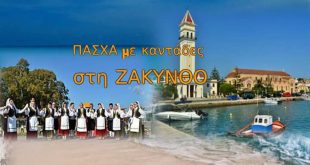Taxisnet is available from Thursday (28/03) for submission of income tax returns by individuals (E1-E2-E3) for income received in 2018.
Taxpayers will have a time limit to submit their returns, until 30 June. Also, based on information of the Independent Public Revenue Authority (AADE), this years ENFIA is scheduled to run in July, so that its payment can begin earlier and be completed by the end of 2019.
Form E1 is to be submitted by over 6.2 million taxpayers, this year was issued without any substantial differences, in comparison to last years form. There is no change in the way income tax is to be paid. It will be paid in three equal bi-monthly instalments, the first being paid at the end of July, i.e. by the last working day if paying in person, or last day of the month if using e-banking.
ENFIA is expected in July and will be paid in five monthly instalments, starting 31st July and ending 31st December, in six equal monthly instalments.
The 25 points of the tax return:
Taxpayers should know the following before they start submitting their returns:
A joint tax return, two clearing statements: From this year each spouse will have their own clearance. In the joint tax return, by spouses, separate certification of tax is carried out and two clearing statements will be issued. One for each spouse. Credit amounts of one spouse will not be offset against any debts of the other, and if they are both to be reimbursed, each recipient will be refunded separately.
Couples with a separate returns: Spouses have the opportunity to submit a separate returns: In this case they should have notified this option in the electronic application that is already operating in Taxisnet system no later than 28th February. In table 1 of form E1, in the personal data of the taxpayer, a new field has been added for the separate returns of spouses. Those who choose a ‘Tax divorce’ should click on NAI / YES and fill in the spouses AFM / VAT number.
Separate returns without notification to Taxisnet: Spouses submit separate tax returns, without requiring notification to the specific electronic application, each one on his or her income if, as a married couple they are no longer living together, at the time of filing the return, or one of the two spouses is in a state of bankruptcy, or has been subject to legal assistance.
The burden of proof of cessation is borne by the taxpayer. A prerequisite is the updating of the Register of the Tax Office – DOY.
Civil partnership: Individuals who have entered into a civil partnership, in the case that they have informed the Registry of the Tax Office, may submit a joint return on their income. In this case they have the same tax treatment as married people and the person liable to file the return is the part of the civil partnership who when filing the income tax return is declares themself liable and for the income of the other party of the civil partnership.
Residents of abroad: If a tax resident of Greece moves his/her residence abroad, the return is submitted on time for the entire tax year and no later than 31.12.2019.
Statements of the deceased: These are filed, handwritten, to the relevant tax office, with the deadline of 31.12.2019. In this case, it is necessary to inform the Department of Administrative and IT support of the Tax Office of the deceased, before filing the return, with the date of death and the details of the legal heirs / closest relatives, by submitting the necessary supporting documents.
Form E3 of an under age child: The return of the parent with the E3 of the minor child, needs to be submitted, handwritten, to the relevant tax office
Bankruptcy: In the case of bankruptcy, two returns are filed, one from the bankruptcy trustee for income from the bankruptcy estate, handwritten, to the relevant tax office and a return from the bankrupted about any income from the non-bankruptcy estate, electronically.
Returns with reservation: Reserved returns are filed electronically via the Internet and within a period of 30 days taxpayers need to submit, to the tax office, the necessary supporting documents.
Backpay: Amending returns for backpay of wages or pensions from previous years, backpay of unemployment benefits, doctors’ fees of the ESY / NHS from afternoon clinics are filed, without fines and interest, until the end of the tax year where the appropriate vevaiosi / attestation of earnings or pensions, was issued.
Special payroll: The approximately 400,000 active and retired civil servants who fall under the special payroll and received backpay in December 2018, will be required to pay 2.2% – 10% special solidarity contribution for these amounts.
Income from short-term rental properties type Airbnb: They are declared collectively per property in code 60 of column 16 of form E2 (detailed statements for real estate leases). By selecting the code 61 in the column, all incomes obtained from the short-term sublease of real estate via digital platforms (Airbnb, Booking etc.) will be declared collectively per property.
‘Epitidevmatos telos’ / Business fee/tax: The number of taxpayers who are exempt from payment of this business tax is widening. The list includes farmers – members of agricultural cooperatives as well as those who have started a business but are in a state of bankruptcy or inactivity. In the case of inactivity where it does not take up the entire tax year, the business fee is limited to the months of operation.
Student residence: Those students studying away from home and renting a student home, provided that in 2018 they acquired, in any form and of any amount, income (even from interest on deposits or casual employment) will be liable with the ‘tekmirio diaviosi / living presumption’ of the rented residence, risking having to pay income tax.
Expenses, with plastic money: Codes 049-050 ‘Cost of goods and services bought’ are pre-filled in for the employed, pensioners and professional farmers, the amount of money for purchases of goods and services which they paid for, in 2018, with plastic money, or e-banking, or e-wallet, to maintain the tax reduction of 1,900 – 2,100 euros, which is equivalent to a tax-free amount of 8,636 – 9,545 euros. The minimum total amount of expenses, which guarantees the tax credit, is determined as a percentage of individual – declared or presumed – taxable income, as follows:
10% for income up to 10,000 euros
15% for income from 10,001 to 30,000 euros and
20%, if income exceeds 30,000 euros, on the amount from 30.001 and up.
Taxpayers, who have not covered their taxable income with the required amount of electronic payment receipts, will pay an extra tax of 22% on the amount that is ‘missing’.
In each case where the presumed income, i.e. that resulting from the application of the presumptions of living and the acquisition of assets, is greater than that declared and the additional difference is not covered by the taxpayer, the amount of annual expenses for purchases of goods and services to be paid by electronic means of payment in order to guarantee the tax credit will be determined as a percentage of the (highest) presumption and not the (lowest) declared income.
AMKA: It is compulsory to note the AMKA number of the person liable and his/her spouse or partner. AMKA is also declared for dependent children except in cases where they are not required to acquire AMKA. Also excluded from noting AMKA numbers are taxpayers who, for reasons of sensitive personal data, do not wish to disclose the AMKA neither theirs nor their dependents, as well as the employees of the Black Sea Trade and Development Bank.
AFM / Tax number:
The noting of your AFM number is compulsory, only for dependent family members that are over the age of 18 (over 18 years old at 31/12/2018).
Young people aged 18 and over: Those who have reached the age of 18, by 31st December 2018 and have actual or presumed income are required to submit a tax return. Adult children, who can be considered as dependent children, are required to file a tax return when they earn real income or have presumed income.
Wages – Pensions: Wages and pensions are pre-filled this year, once again. The possibility of correction, does not exist. If you appear to have received income that has not been paid, the only solution is to contact your employer and ask them to adjust your earnings to real data. If they refuse you need to make a return with ‘reservation’.
‘Filoksenoumenoi’ / Hosting: Taxpayers hosting a relative or friend in their home must complete 007-008 and write the AFM number of the person who they host, as well as the dates for which they offered hospitality in 2018.
This will make it possible to cross-reference between the returns of the hosting-provider and the guest. (my note – referring to those that are being hosted on a semi-permanent or permanent basis, not visiting for a few days).
Protected children – dependent members: Minors or adult children, as well as members of the family of the taxpayer with a disability of 67% or more, are considered to be liable to the taxpayer, if they cohabit with him and their annual taxable income does not exceed EUR 3.000, or EUR 6.000 if they have a disability of 67% or more.
‘Tekmiria’ / Presumed: Beware of the presumed. To avoid paying extra tax you should cover the ‘presumed’ tax in various ways, such as the use of money that was taxed in previous years – proven by withdrawal from bank account, income from the sale of assets or from a ‘goniki parohi’ / parental benefits and donations of money, which a notarial deed proves and is dated up until 31st December 2018.
Residences: Income from the renting of property – first of all form E2 is filled in, then the amount is transferred to the corresponding codes of form E1.
Uncollected rents: Property owners, to be exempted from income tax payment for rents not collected in 2018, need to have served an eviction order against the tenant who did not pay overdue rents in time. They, property owners, need to visit their tax office to file a photocopy of payment orders, judicial decisions or eviction orders.
Unpaid wages: In the case of unpaid wages, the employee taxpayer who has a ‘vevaiosi’ / certificate of wages from his employer, where the separation of income from unpaid wages does not show, in the period referred to may submit amended returns for the taxing of those incomes, per year.
 Zakynthos Informer Zakynthos Informer
Zakynthos Informer Zakynthos Informer





